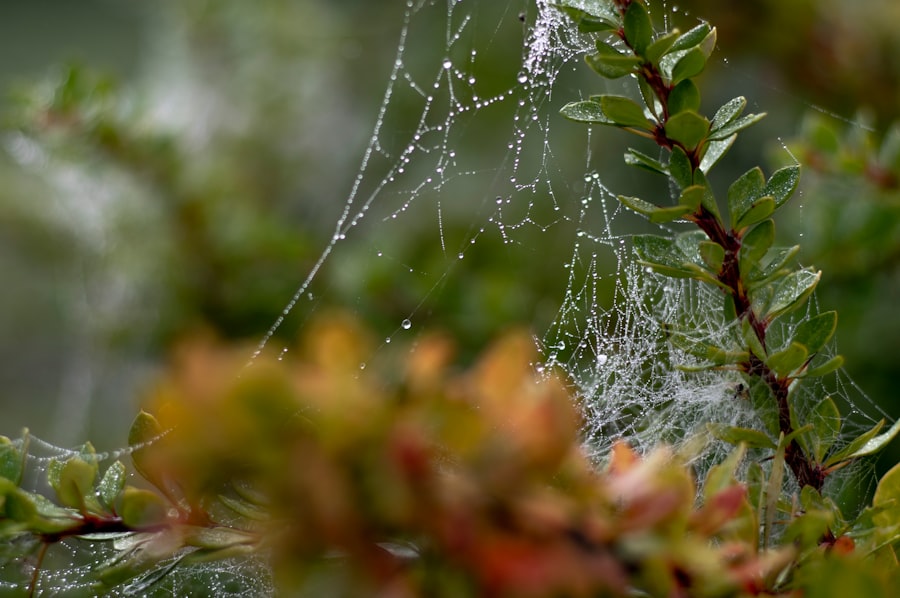Gophers are small, burrowing rodents known for their destructive behavior in gardens and farms. These herbivores primarily consume roots, tubers, and other underground plant parts. Gophers remain active throughout the year, with peak activity during early morning and late afternoon.
They are solitary animals, preferring to inhabit their extensive burrow systems alone, which can span several hundred feet. Female gophers are prolific breeders, producing multiple litters annually. Their burrowing activities can cause significant damage to crops, lawns, and irrigation systems, making them problematic for farmers and gardeners.
Gophers exhibit territorial behavior, aggressively defending their burrow systems against other gophers and potential predators. These highly adaptable animals can thrive in various environments, including grasslands and agricultural fields. Understanding gopher behavior is essential for implementing effective prevention and control measures to protect coops and gardens from their destructive habits.
Table of Contents
- 1 Creating a secure coop and run for chickens
- 2 Implementing natural deterrents for gophers
- 3 Using physical barriers to keep gophers away
- 4 Maintaining a clean and organized coop area
- 5 Seeking professional help for severe gopher infestations
- 6 Monitoring and adapting prevention methods for long-term success
- 7 FAQs
- 7.1 What are gophers and why are they a problem for chickens?
- 7.2 What are some natural ways to keep gophers away from chickens?
- 7.3 What are some humane ways to control gopher populations near chickens?
- 7.4 What are some commercial products that can help keep gophers away from chickens?
- 7.5 How can I prevent gophers from causing damage to my chicken coop and run?
Key Takeaways
- Gophers are burrowing rodents that can cause damage to gardens and chicken coops
- A secure coop and run for chickens is essential to protect them from gophers
- Natural deterrents like planting gopher-repelling plants can help keep gophers away
- Physical barriers such as wire mesh can be used to prevent gophers from entering the coop area
- Keeping the coop area clean and organized can help reduce the risk of gopher infestations
- Professional help may be necessary for severe gopher infestations
- Regular monitoring and adapting prevention methods are key for long-term success in controlling gophers
Creating a secure coop and run for chickens
Secure Coop Construction
When it comes to keeping gophers at bay, a secure coop is essential. Start by building your coop with sturdy materials that cannot be easily burrowed into by gophers. Use hardware cloth or wire mesh with small openings to prevent gophers from gaining access to your coop. Additionally, bury the wire mesh at least 12 inches into the ground to deter gophers from digging underneath the coop.
Securing the Run Area
In addition to securing the coop, it’s crucial to focus on the run area where your chickens spend their time outside. Install a wire mesh apron around the perimeter of the run to prevent gophers from burrowing into the enclosed area. This apron should extend at least 12 inches outward and be buried several inches into the ground to effectively deter gophers.
Regular Inspections and Maintenance
Regularly inspect the coop and run for any signs of burrowing or digging, and promptly address any potential entry points to ensure the security of your chickens. By staying vigilant and taking proactive measures, you can prevent gophers from causing damage to your coop and run.
By implementing these preventative measures, you can create a safe and secure environment for your flock to thrive without the threat of gopher damage.
Implementing natural deterrents for gophers

In addition to physical barriers, there are natural deterrents that can help keep gophers away from your coop and garden. One effective natural deterrent is planting gopher-repelling plants such as castor bean, daffodils, or marigolds around the perimeter of your coop and garden. These plants emit odors or toxins that are unpleasant to gophers, deterring them from entering the area.
Another natural deterrent is using predator urine or predator scent repellents around the perimeter of your coop and garden. Gophers are naturally wary of predators, so the scent of a predator can help keep them at bay. You can purchase predator urine or scent repellents from garden supply stores or online retailers and apply them around the perimeter of your coop and garden as directed.
Additionally, some gardeners have had success with using garlic and chili pepper sprays as natural gopher deterrents. These sprays can be applied to the soil around your coop and garden to create an unpleasant environment for gophers. However, it’s important to reapply these sprays regularly, especially after rainfall, to maintain their effectiveness.
By implementing natural deterrents such as gopher-repelling plants, predator urine, and garlic/chili pepper sprays, you can help keep gophers away from your coop and garden in a safe and environmentally friendly manner.
Using physical barriers to keep gophers away
In addition to natural deterrents, physical barriers can be highly effective in keeping gophers away from your coop and garden. One popular method is using underground fencing made of wire mesh or hardware cloth to create a barrier that prevents gophers from burrowing into the area. This fencing should be buried at least 24 inches into the ground and extend several inches above the surface to effectively deter gophers.
Another physical barrier option is using raised garden beds for planting crops instead of traditional ground-level planting. Raised beds can make it more difficult for gophers to access the roots of plants, reducing the risk of damage to your crops. Additionally, lining the bottom of raised beds with wire mesh or hardware cloth can provide an extra layer of protection against gopher intrusion.
For areas where gophers are particularly problematic, installing underground barriers made of metal or plastic can be an effective long-term solution. These barriers are installed below ground level and create a physical barrier that prevents gophers from accessing the area. While more labor-intensive and costly than other methods, underground barriers can provide lasting protection against gopher infestations.
By using physical barriers such as underground fencing, raised garden beds, and underground barriers, you can effectively keep gophers away from your coop and garden while minimizing the risk of damage to your crops and plants.
Maintaining a clean and organized coop area
Keeping a clean and organized coop area is essential for preventing gopher infestations. Gophers are attracted to areas with abundant food sources, so it’s important to minimize potential attractants in and around your coop. Start by regularly removing any spilled feed or food scraps from the coop area to reduce the risk of attracting gophers.
Additionally, keep the area around your coop free of clutter and debris that could provide hiding spots for gophers. Clear away any brush piles, woodpiles, or overgrown vegetation near the coop to eliminate potential habitat for gophers. By maintaining a clean and organized coop area, you can reduce the likelihood of attracting gophers to your property.
Regularly inspect the perimeter of your coop for any signs of burrowing or digging, and promptly address any potential entry points to prevent gophers from gaining access to the area. By staying vigilant and maintaining a clean and organized coop area, you can help minimize the risk of gopher infestations and protect your chickens from potential harm.
Seeking professional help for severe gopher infestations

Targeted Treatments for Gopher Control
Professional pest control services can provide targeted treatments such as trapping or baiting to reduce gopher populations on your property. Trapping is a humane method of capturing gophers, while baiting involves using toxic baits that are placed in burrow systems to eliminate gophers. These methods should only be carried out by trained professionals to ensure the safety of your chickens and other wildlife on your property.
Long-term Prevention Strategies
Wildlife management experts can also provide valuable insight into long-term prevention strategies for keeping gophers away from your coop and garden. They can assess your property for potential attractants and vulnerabilities that may be contributing to gopher infestations, and offer recommendations for effective prevention measures.
Seeking Professional Help for a Lasting Solution
If you are dealing with a severe gopher infestation that is causing significant damage to your coop and garden, seeking professional help is a proactive step towards finding a lasting solution to the problem.
Monitoring and adapting prevention methods for long-term success
Once you have implemented prevention methods to keep gophers away from your coop and garden, it’s important to regularly monitor their effectiveness and adapt as needed for long-term success. Keep an eye out for any signs of gopher activity such as fresh mounds of soil or burrowing near your coop, as these may indicate that additional prevention measures are needed. Regularly inspect physical barriers such as underground fencing or raised garden beds for any signs of damage or wear that could compromise their effectiveness.
Repair or reinforce these barriers as needed to maintain their ability to keep gophers at bay. In addition, continue to use natural deterrents such as predator urine or scent repellents, as well as maintaining a clean and organized coop area to minimize attractants for gophers. By staying proactive and adapting prevention methods as needed, you can help ensure long-term success in keeping gophers away from your coop and garden.
In conclusion, understanding the behavior of gophers is crucial for implementing effective prevention methods to protect your coop and garden from their destructive habits. By creating a secure coop and run, implementing natural deterrents, using physical barriers, maintaining a clean environment, seeking professional help when needed, and monitoring prevention methods for long-term success, you can effectively keep gophers away from your property while providing a safe and secure environment for your chickens to thrive.
If you’re looking for more tips on keeping your chickens safe and healthy, check out this article on choosing the right flooring for your chicken coop. A well-designed coop can help keep gophers and other pests away from your flock, ensuring their safety and well-being.
FAQs
What are gophers and why are they a problem for chickens?
Gophers are small burrowing rodents that can cause damage to chicken coops and runs by digging tunnels and eating plants. They can also pose a threat to the safety of chickens by creating holes for them to fall into.
What are some natural ways to keep gophers away from chickens?
Some natural ways to keep gophers away from chickens include planting gopher-repelling plants such as castor bean, using garlic and chili pepper sprays, and introducing natural predators like owls and snakes to the area.
What are some humane ways to control gopher populations near chickens?
Humane ways to control gopher populations near chickens include using live traps to capture and relocate gophers, installing barriers such as underground wire mesh to prevent gophers from entering the chicken coop, and using sonic devices to deter gophers from the area.
What are some commercial products that can help keep gophers away from chickens?
There are several commercial products available that can help keep gophers away from chickens, including gopher repellent sprays, ultrasonic gopher repellers, and gopher traps designed specifically for use near chicken coops.
How can I prevent gophers from causing damage to my chicken coop and run?
To prevent gophers from causing damage to your chicken coop and run, you can regularly inspect the area for signs of gopher activity, fill in any gopher holes, and keep the area around the coop clear of debris and overgrown vegetation. Additionally, installing barriers such as underground wire mesh can help prevent gophers from entering the area.
Meet Walter, the feathered-friend fanatic of Florida! Nestled in the sunshine state, Walter struts through life with his feathered companions, clucking his way to happiness. With a coop that’s fancier than a five-star hotel, he’s the Don Juan of the chicken world. When he’s not teaching his hens to do the cha-cha, you’ll find him in a heated debate with his prized rooster, Sir Clucks-a-Lot. Walter’s poultry passion is no yolk; he’s the sunny-side-up guy you never knew you needed in your flock of friends!







